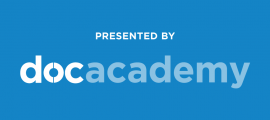How do Into Film Clubs work?
Find out more about what's involved in running your very own Into Film Club.



12–16
Medium (5-11 activities)
This five-lesson series uses short clips from the BBC documentary series Exodus to support the English language assessment objectives for GCSE. Exodus follows English teacher Hassan as he leaves war-torn Syria and attempts to travel to the UK, showcasing the untold story of the migrant crisis. Students practise a range of reading, writing and listening skills, while building their understanding of a critical issue affecting people across the world today.
Lesson One - Exodus
Learners are introduced to the migrant crisis and analyse structures that build narrative, whilst considering reasons for migration.
Learning Objective:
Clip(s) to Use - Clip 1: Introduction
Lesson Two - Meeting Hassan
Focuses on Hassan, an English teacher from Syria who shares his experience of leaving his country to travel to Europe. Students use his story to develop analysis skills, centred on implied and explicit information.
Learning Objective:
Clip(s) to Use - Clip 2: Meeting Hassan, Clip 3: The Journey
Lesson Three - The Journey
Centres on Hassan's journey from Syria to Europe, focusing on writer's techniques to build suspense, drama and provide clues as to what will happen next in a non-fiction text.
Learning Objective:
Clip(s) to Use - Clip 3: The Journey, Clip 4: Back to Izmir
Lesson Four - Calais
Students examine a physical description of the Calais migrant camp and develop their own creative response, demonstrating understanding of a literary imagery as an effective form of communication.
Learning Objective:
Clip(s) to Use - Clip 7: Another Attempt, Clip 8: Calais
Lesson Five - Responsibility
Centres on Hassan, and details how his story ends in the documentary series Exodus. Students develop their analysis of unseen texts to compare how writers' ideas and perspectives are conveyed.
Learning Objective:
Clip(s) to Use - Clip 9: Touchdown, Clip 10: Hassan's BAFTA Speech

We have developed a large catalogue of educational resources since launching in 2013, and some references and terminology will inevitably have dated as society and language evolves. We are aware of this and will be updating resources when our production schedule allows.